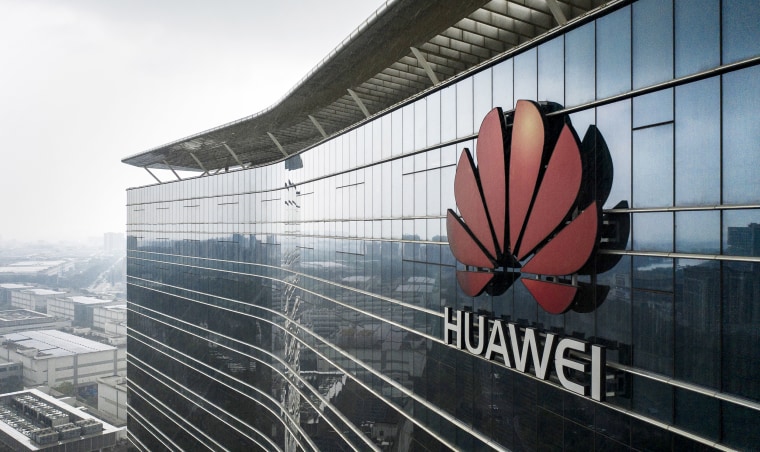Federal prosecutors have hit Chinese telecom equipment manufacturer Huawei with new charges in a superseding indictment unsealed Thursday, which details the company's alleged illegal behavior in Iran and North Korea.
Prosecutors in Brooklyn, New York, alleged that Huawei set up a shell company in Iran so that the subsidiary could purchase U.S. goods, technology and services in an effort to skirt sanctions.
“Huawei assisted the Government of Iran by installing surveillance equipment, including surveillance equipment to monitor, identify, and detain protesters during the anti-government demonstrations of 2009 in Tehran," the prosecutors said in the indictment.
They also allege that Huawei employed at least one citizen in Iran, which is a violation of U.S. law.
In addition, the indictment said that Huawei has been involved in numerous projects in North Korea since at least 2008 and took steps to conceal its involvement in North Korean projects, even allegedly writing on shipping instructions that its logo should not be included when sending products to that nation.
Huawei allegedly misled institutions that processed the transactions so they were unaware of what the company was doing in North Korea, the prosecutors claimed.
The indictment also details allegations of theft of trade secrets by the Chinese telecom giant.
In a press release, prosecutors said Huawei stole intellectual property including, “trade secret information and copyrighted works, such as source code and user manuals for internet routers, antenna technology and robot testing technology.”
Huawei faces three new counts in this superseding indictment, for a total of 16, including racketeering conspiracy and conspiracy to steal trade secrets. The Trump administration previously charged the company in January 2019.
The indictment alleges that Huawei stole trade secret and intellectual property information from six U.S. companies.
In one instance, Huawei entered into a contract with an unnamed professor from a Chinese research university, prosecutors claimed. That professor contacted Huawei seeking access to a prototype memory board containing the U.S. company’s proprietary chip. The indictment alleges that the professor received the board and passed along the information about its distributor to Huawei and conducted performance research on the board, which would assist Huawei with its efforts to reverse-engineer the technology.

